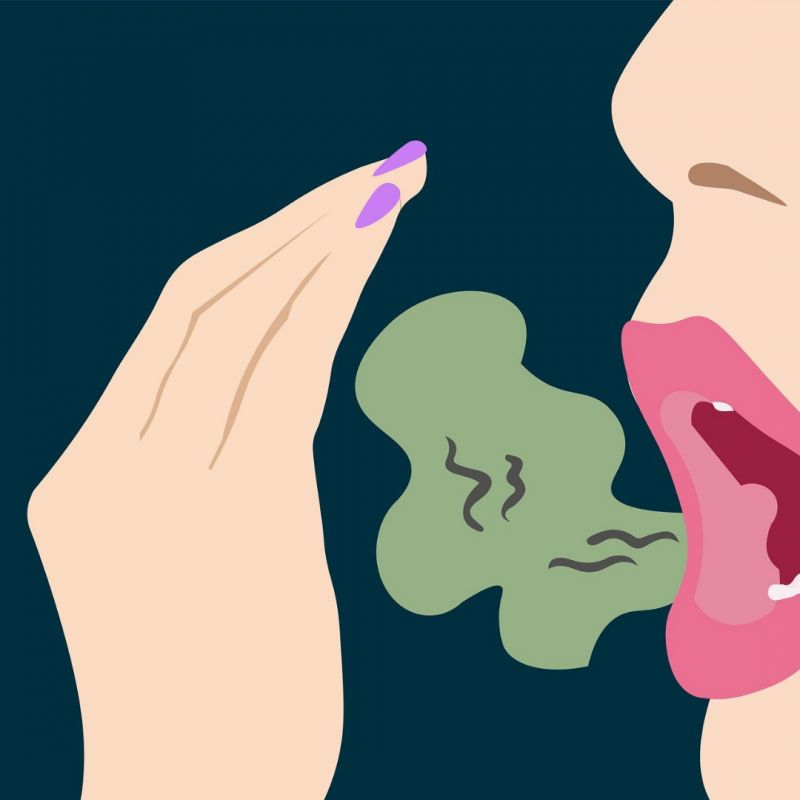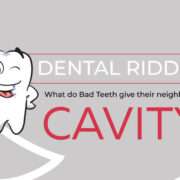Have you ever wondered, “Why does my mouth smell bad even after brushing?” Many of us have this frequent worry, and the solution may not be as straightforward as we may believe. That persistent foul breath might be confusing even with our strict dental hygiene regimen. We’ll investigate potential causes of this recurring problem in this blog, looking at things other than simple brushing.
Science Behind Bad Breath
Understanding the Oral Microbiome
The health of our oral cavity is greatly influenced by the oral microbiome, a dynamic and varied ecology of bacteria that live in our mouths. Dr. Chirag Chamria clarifies this complex universe by highlighting two important points:
Role of Bacteria in the Mouth
The mouth is home to billions of bacteria, both beneficial and harmful. Dr. Chamria explains how these microorganisms coexist, contributing to functions such as digestion, immune system modulation, and protection against harmful invaders. However, an imbalance in this delicate ecosystem can lead to undesirable consequences, including bad breath.
Impact of Diet on Oral Microflora
Unravel the connection between what we eat and the composition of our oral microbiome. Dr. Chamria highlights how dietary choices influence the types of bacteria present in the mouth. Certain foods create an environment conducive to the growth of odor-producing bacteria, while others support a healthier microbial balance. Learn how a well-balanced diet is not only essential for overall health but also for maintaining optimal oral flora.

Cause of Chronic Bad Breath: Halitosis
Chronic foul breath, or halitosis, is a problem that extends beyond the infrequent morning breath or after-onion snack odor. This could be one of the reasons for your question, “Why Does My Mouth Smell Bad Even After Brushing?”. Let’s examine the complexities of halitosis, discussing its causes and the significance of figuring out what’s really going on.
Causes and Factors Contributing to Halitosis
Poor Oral Hygiene Practices: Inadequate brushing, flossing, and tongue cleaning allow bacteria to thrive in the mouth, leading to the production of sulfur compounds responsible for foul odors.
Gum Disease and Infections: Periodontal issues, such as gingivitis or more advanced forms of gum disease, create a breeding ground for bacteria.

Dry Mouth (Xerostomia): Reduced saliva flow means less natural cleansing and neutralization of bacteria. Individuals experiencing dry mouth due to factors like medications or dehydration may find themselves more susceptible to halitosis.
Dietary Habits: Certain foods, like onions, garlic, and spicy dishes, contain volatile compounds that can linger in the mouth.
Tobacco and Alcohol Use: Smoking and excessive alcohol consumption contribute to a host of oral health issues, including bad breath.
Importance of Identifying the Underlying Issues
- Customized Treatment Plans: Identifying the specific factors contributing to an individual’s halitosis allows for tailored treatment plans.
- Prevention of Future Issues: By addressing the underlying causes, individuals can prevent the recurrence of bad breath.
- Systemic Health Awareness: Halitosis can be a symptom of systemic health issues.
- Enhanced Quality of Life: Resolving halitosis at its source contributes to an improved quality of life.
Role of Brushing in Oral Hygiene to Avoid Bad Smells
Importance of Regular Brushing
Breaking Down Plaque Formation
Dr. Chamria underscores the pivotal role of regular brushing in combating plaque, a sticky film of bacteria that accumulates on teeth. Through effective brushing techniques, individuals can disrupt plaque formation, preventing its progression into more serious issues like cavities and gum disease.
Removing Food Particles and Bacteria
Beyond plaque, the act of brushing plays a crucial role in eliminating lingering food particles and bacteria from the oral cavity. Dr. Chamria emphasizes how this process not only contributes to immediate freshness but also aids in the prevention of bad breath and dental decay.

Common Mistakes in Brushing Habits | Brushing Technique
Choosing the Right Toothbrush: Select a toothbrush with soft bristles to prevent damage to tooth enamel and gums. Understanding the importance of the right tool sets the stage for an optimal brushing experience.
Perfecting the Motion: The recommended technique—using gentle, circular motions rather than aggressive back-and-forth scrubbing. This technique not only ensures thorough plaque removal but also protects the delicate structures of the teeth and gums.
Duration and Frequency: The need for brushing for a minimum of two minutes, twice a day. This duration allows for comprehensive cleaning and ensures that all tooth surfaces are adequately addressed.
Incorporating Gentle Pressure: The application of gentle pressure allows the bristles to do the work. Brushing too hard can lead to enamel erosion and gum recession, compromising oral health in the long run.
Common Mistakes in Brushing Habits | Overlooking Tongue and Gums
Dr. Chamria shines a spotlight on two areas often neglected in the brushing routine—the tongue and gums. Recognizing the importance of addressing these overlooked regions enhances the overall efficacy of oral care:
- Tongue Cleaning for Fresh Breath
- Gentle Care for Gums
- Utilizing Antimicrobial Mouthwash
Identifying Underlying Dental Issues
Connection Between Bad Breath and Oral Health Problems
Cavities and Tooth Decay
Dr. Chamria explores the correlation between bad breath and cavities, or tooth decay. When bacteria accumulate in the mouth, they produce acids that contribute to enamel erosion, leading to cavities. Addressing these dental issues not only preserves the integrity of the teeth but also aids in combating bad breath at its source.
Gum Diseases: Gingivitis and Periodontitis
Gingivitis and periodontitis, inflammatory conditions affecting the gums, are significant contributors to bad breath. Dr. Chamria delves into how the presence of bacteria in the gums can lead to not only unpleasant odors but also serious gum diseases. Understanding this link emphasizes the importance of maintaining healthy gums for fresh breath.
Regular Dental Check-ups: A Preventive Approach
Professional Cleaning and Its Benefits
Dr. Chamria advocates for the proactive step of regular dental check-ups, which include professional cleaning. He explains how even the most diligent at-home oral care routine may miss certain areas prone to plaque buildup. Professional cleaning not only removes stubborn plaque and tartar but also serves as a preventive measure against bad breath and dental issues.
Early Detection of Dental Issues
Regular dental check-ups go beyond cleaning—they are a gateway to early detection of dental problems. Dr. Chamria emphasizes how identifying issues like cavities and gum diseases in their infancy allows for timely intervention. Early treatment not only preserves oral health but also prevents the escalation of bad breath concerns.
Conclusion
In summary, the investigation into “Why Does My Mouth Smell Bad Even After Brushing?” reveals important information. We’ve looked at the science of foul breath, the importance of using the right brushing techniques, and the crucial connection between oral health issues and chronic halitosis. A thorough dental care regimen, including tongue cleansing and expert examinations, is essential to maintaining a breath of fresh air. Together, we may overcome the limitations of foul breath by adopting holistic dental habits. Seeking expert dental counsel becomes not only an option but a proactive move towards a confident, renewed smile for long-lasting freshness and good oral health.






